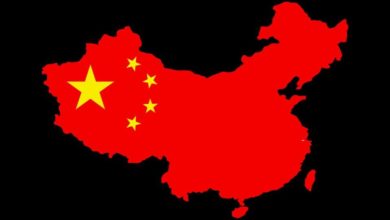تحديات عمليات حفظ السلام في إفريقيا: “المينوسما” في مواجهة الأزمة السياسية الأمنية في مالي
The challenges of the Peacekeeping Operations in Africa : MINUSMA facing the political and security crisis in Mali
Mr. Said CHAMKHI – Docteur chercheur en Etudes Africaines, diplômé de l’Université Mohammed V de Rabat, Maroc
Mme Khadija BOUTKHILI – Professeur de l’Enseignement Supérieur, FSJES de Salé, Université Mohammed V de Rabat, Maroc
- المركز الديمقراطي العربي
- مجلة الدراسات الإستراتيجية والعسكرية : العدد الثالث عشر كانون الأول – ديسمبر 2021 , المجلد 4 وهي مجلة ثلاثية دولية محكّمة تصدر من ألمانيا – برلين عن “المركز الديمقراطي العربي” .
- تعنى المجلة في مجال الدراسات والبحوث والأوراق البحثية في مجالات الدراسات العسكرية والأمنية والإستراتيجية الوطنية، الإقليمية والدولية.
للأطلاع على البحث “pdf” من خلال الرابط المرفق :-
ملخص :
جاء تدخل الأمم المتحدة في مالي، من خلال إنشاء عملية لحفظ السلام، ردا على تداعيات الأزمة التي هزت البلاد منذ سنة 2012 والتي كادت أن تعصف بمنطقة الساحل والصحراء بأكملها. فبعد اندلاع تمرد الطوارق في شمال مالي وتورط الجماعات الإسلامية في الصراع، وتفاقم الوضع بسبب الانقلاب الذي أوقف العمل الطبيعي للمؤسسات، وجدت البلاد نفسها غارقة في أزمة متعددة الأبعاد تتطلب تدخل المجتمع الدولي للمساعدة في جهود استعادة النظام الدستوري. وبعد التدخل العسكري لفرنسا والقوات الإفريقية لمحاربة الجماعات الإرهابية، أنشأت الأمم المتحدة “بعثة الأمم المتحدة المتكاملة المتعددة الأبعاد لتحقيق الاستقرار في مالي” (مينوسما) بهدف استعادة سلطة الدولة ودعم العملية السياسية وتنفيذ اتفاق السلام مع اتخاذ عدد من التدابير الكفيلة بإرساء الاستقرار في البلاد.
بعد أكثر من ثماني سنوات من العمل، سيكون من المنطقي، في هذا المقال، البحث عن مدى نجاح هذه البعثة في تحقيق أهدافها التي حددتها الأمم المتحدة، خاصة أنها تواجه مؤخرًا تحديا آخر بسبب عودة الانقلابات العسكرية خلال سنتي 2020 و2021، بحيث تكرس هذه الأخيرة هيمنة الجيش على المشهد السياسي في مالي، مما يعقد مهمة “المينوسما” في فترة جديدة من الانتقال السياسي الذي يغذي المخاوف أكثر مما يمنح الآمال.
Les défis des Opérations de Maintien de la Paix en Afrique : La MINUSMA face à la crise politico-sécuritaire au Mali
Résumé
L’intervention des Nations Unies au Mali, à travers la mise en place d’une opération de maintien de la paix, était une réponse aux répercussions de la crise qui avait secoué le pays depuis 2012 et qui avait risqué d’envahir l’ensemble de l’espace sahélo-saharien. En effet, après le déclenchement de la rébellion touarègue au nord du Mali, l’implication des groupes islamistes dans le conflit et l’exacerbation de la situation par le coup d’État qui a interrompu le fonctionnement normal des institutions, le pays s’est trouvé plongé dans une crise multidimensionnelle exigeant l’intervention de la communauté internationale pour contribuer à appuyer le retour à l’ordre constitutionnel. Et suite à l’intervention militaire de la France et les forces africaines pour lutter contre les groupes terroristes, les Nations Unies ont établi la MINUSMA dans le but de rétablir l’autorité de l’État et appuyer le processus politique et la mise en œuvre de l’accord de paix tout en réalisant un certain nombre d’activités de stabilisation.
Après plus de huit ans d’action, il serait logique, dans cet article, de chercher dans quelle mesure cette mission onusienne a réussi à réaliser ses objectifs fixés par les Nations Unies, d’autant plus qu’elle se trouve récemment confrontée à un autre défi en raison de la résurgence des coups d’État en 2020 et 2021 qui consacrent la domination des militaires sur la scène politique malienne, ce qui enfonce l’action de la MINUSMA au sein d’une nouvelle période de transition politique qui nourrit plus de craintes que d’espoirs.
Abstract
Through the implementation of a peacekeeping operation, the intervention of the United Nations in Mali was a response to the repercussions of the crisis that had shaken the country since 2012 and which had exposed the whole Sahelo-Saharan region to the risk of invasion. In fact, after the outbreak of the Tuareg rebellion in northern Mali, the involvement of Islamist groups in the conflict, and the exacerbation of the situation by the coups d’état which interrupted the normal functioning of institutions, the country found itself plunged into a multidimensional crisis which required the intervention of the international community to help bring back constitutional order. After the military intervention of France and African forces to combat terrorist groups, the United Nations established MINUSMA with the aim of restoring the authority of the State, supporting the political process there and the implementation of the peace agreement while still carrying out a number of stabilization activities.
After more than eight years of action, it would be logical, in this article, to address the extent to which this mission has succeeded in achieving the objectives set by the United Nations, especially that it has recently faced another challenge due to the resurgence of coups d’état in 2020 and 2021 which have consolidated the military’s domination of the Malian political scene. This plunges MINUSMA’s action into a new period of political transition which feeds fears more than hopes.




